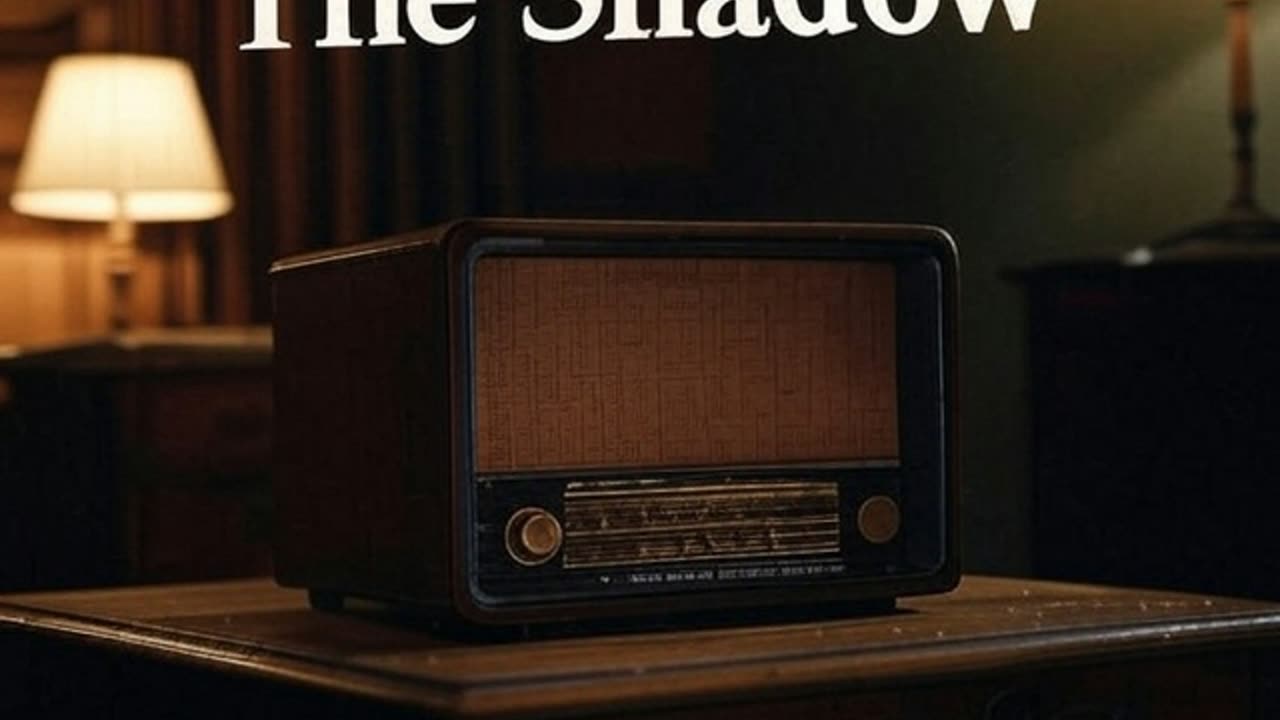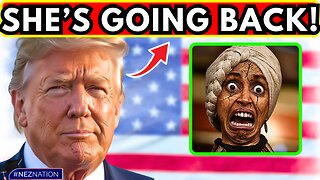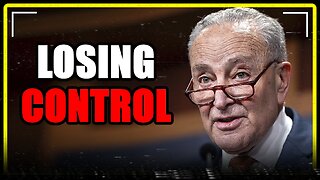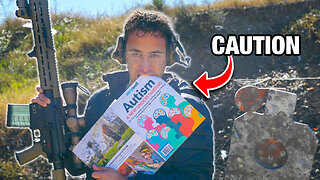Premium Only Content

The Shadow (February 27, 1938) - "The Plot Murder"
"The Plot Murder," an episode of the radio drama The Shadow aired on February 27, 1938, follows the mysterious crime-fighter, Lamont Cranston, who uses his alter ego, The Shadow, to thwart a sinister murder plot. In this episode, Cranston, with his companion Margo Lane, uncovers a scheme orchestrated by a cunning criminal mastermind aiming to eliminate a prominent figure for personal gain. Using his powers of invisibility and psychological manipulation, The Shadow infiltrates the conspiracy, gathering clues and outwitting the perpetrators. The episode is a classic blend of suspense, detective work, and moral justice, with The Shadow's eerie presence ensuring the guilty are brought to justice while protecting the innocent. The narrative emphasizes the battle between good and evil, a hallmark of the series, with dramatic pacing typical of 1930s radio storytelling.
Cast and Crew
Cast:
Orson Welles as Lamont Cranston / The Shadow
Agnes Moorehead as Margo Lane
Supporting actors (typical for the series, not specifically named for this episode): Ray Collins, Everett Sloane, or other Mercury Theatre regulars
Announcer: Likely Frank Readick Jr. or Ken Roberts (common for the period)
Crew:
Director: Likely Martin Gabel or William Alland (Mercury Theatre directors for The Shadow)
Writer: Adapted by staff writers, possibly Jerry Devine or William Sweets, based on Walter B. Gibson’s pulp stories
Producer: Sponsored by Blue Coal (Mutual Broadcasting System)
Music: Provided by the Mutual Network orchestra, possibly led by Bernard Herrmann
Sound Effects: Managed by the Mutual Network’s sound team, led by figures like Ora Nichols
Note: Exact cast and crew details for this specific episode are not fully documented in available sources, so the above is based on the standard The Shadow team during the 1937-1938 season, particularly the Mercury Theatre’s involvement.
News in the United States (Week of February 27, 1938)
Economic Recovery Efforts: The U.S. was grappling with the "Roosevelt Recession" of 1937-1938. President Franklin D. Roosevelt pushed for increased New Deal spending to counter unemployment, which hovered around 19%. Congress debated a $250 million relief package for public works.
Labor Unrest: Strikes continued in the auto industry, with the United Auto Workers targeting General Motors plants in Michigan. Tensions rose over union recognition and wages.
Supreme Court Developments: The Senate Judiciary Committee discussed reforms to prevent judicial overreach after the Supreme Court’s earlier resistance to New Deal policies. This followed the 1937 "court-packing" controversy.
Aviation Milestone: Howard Hughes was preparing for his around-the-world flight, with test flights of his Lockheed 14 Super Electra gaining attention in California.
Cultural Note: The film Snow White and the Seven Dwarfs, released by Disney in December 1937, continued to dominate box offices, signaling the rise of animated features.
News in the World (Week of February 27, 1938)
Germany’s Aggression: Adolf Hitler intensified pressure on Austria, demanding political concessions. This foreshadowed the Anschluss (annexation) on March 12, 1938. Nazi propaganda campaigns were escalating in Vienna.
Spanish Civil War: The Battle of Teruel concluded with Franco’s Nationalists regaining the city, weakening Republican forces. Heavy casualties and foreign involvement (German and Italian aid to Nationalists, Soviet support for Republicans) dominated headlines.
Japan-China Conflict: Japan’s invasion of China saw brutal advances, with Nanjing still reeling from the December 1937 massacre. Japanese forces pushed toward central China, targeting key railway hubs.
UK Appeasement Policy: British Prime Minister Neville Chamberlain faced criticism for his appeasement stance toward Hitler. Foreign Secretary Anthony Eden had resigned on February 20, 1938, over disagreements on handling fascist regimes.
Soviet Purges: Stalin’s Great Purge continued, with the trial of the "Anti-Soviet Bloc of Rightists and Trotskyites" in Moscow. High-profile figures like Nikolai Bukharin were sentenced to death, consolidating Stalin’s control.
-
 21:38
21:38
Professor Nez
17 hours agoTrump JUST BROKE the INTERNET with SAVAGE Line on Ilhan Omar!
56610 -
 1:17:52
1:17:52
Dialogue works
3 days ago $2.01 earnedMartin Armstrong: This Is How World War III Starts… And It Already Has
1.71K12 -
 38:16
38:16
daniellesmithab
3 days agoAlberta Update: Getting Kids Back to the Classroom
599 -
 20:48
20:48
BlaireWhite
5 days agoTrans TikTokers Are Crashing Out (Over Nothing)
4504 -
 2:07:06
2:07:06
Side Scrollers Podcast
18 hours agoHasan Piker CAUGHT LYING AGAIN + Twitch URGES LEFTIST IDEOLOGY + More | Side Scrollers
45.8K8 -
 8:40
8:40
MattMorseTV
14 hours ago $5.67 earnedSchumer just KICKED OFF the Left-Wing CIVIL WAR.
7.59K25 -
 21:39
21:39
Nikko Ortiz
2 days agoI Take A North Korean Shooting
9.51K4 -
 1:46:26
1:46:26
The Michelle Moore Show
17 hours ago'The Religion Invasion In the U.S. and the Deep State Agenda' Guest, Mark Taylor: The Michelle Moore Show (Nov 3, 2025)
16.7K21 -
 LIVE
LIVE
TruthStream with Joe and Scott
5 days agoSovereign Codes & Cosmic Infrastructure,Ufo's, UAP's, Monads, Matrix Satellites, Interstellar Visitors, SYRONA #505
242 watching -
 LIVE
LIVE
Lofi Girl
2 years agoSynthwave Radio 🌌 - beats to chill/game to
145 watching